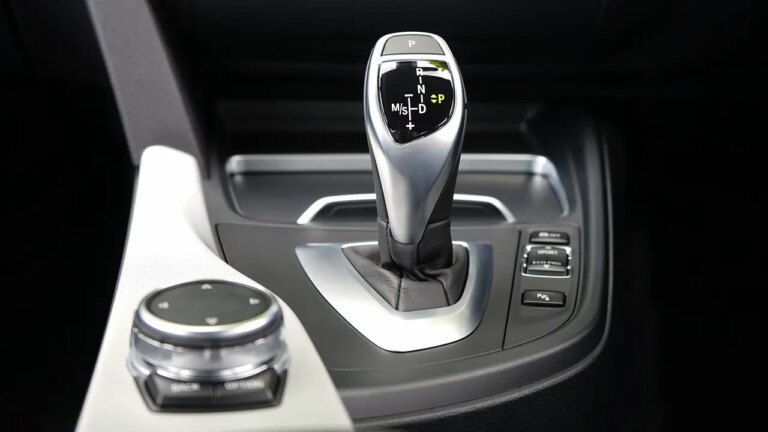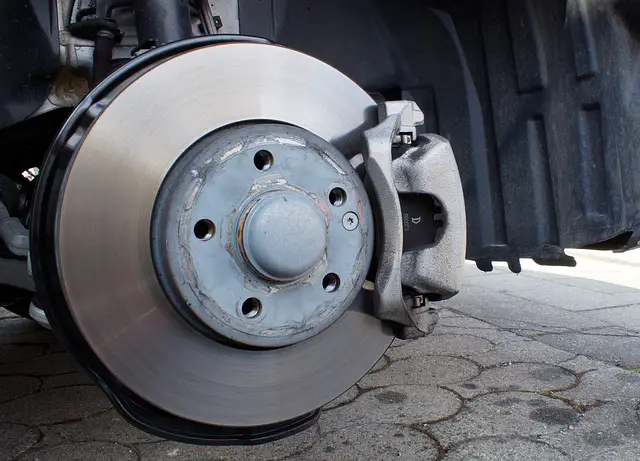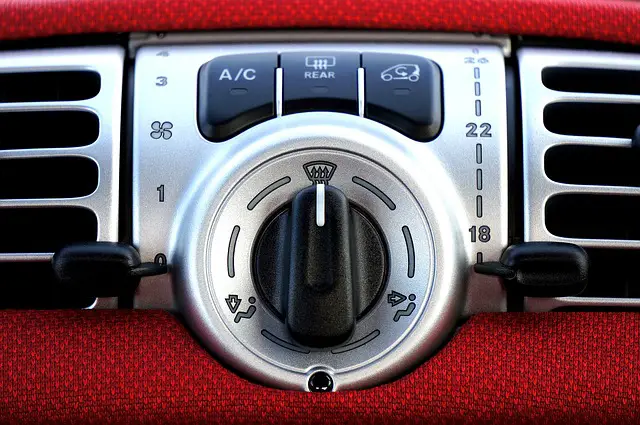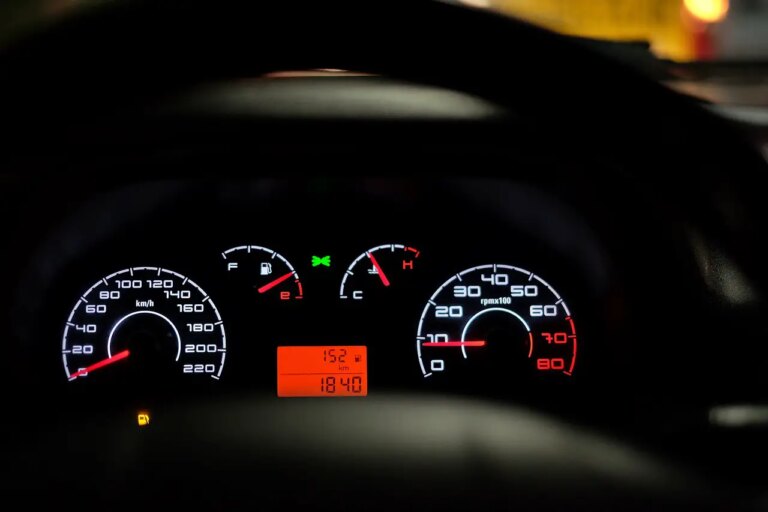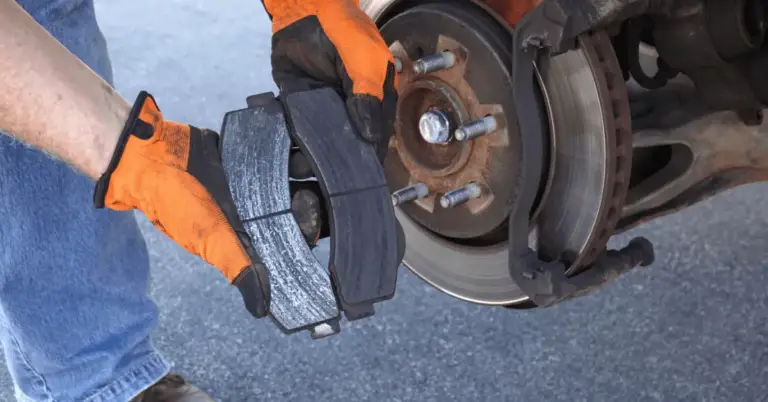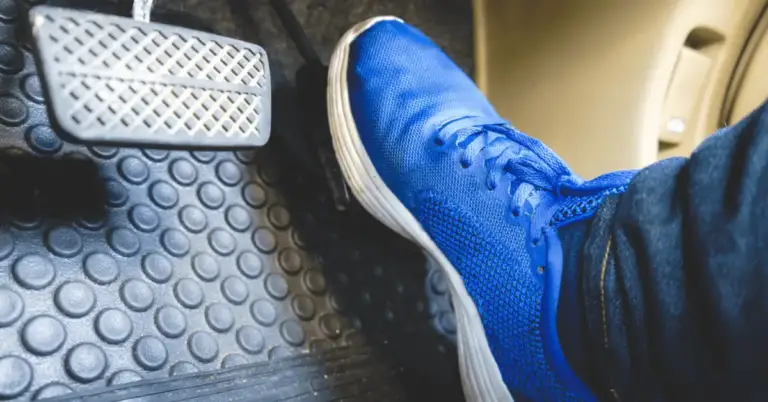If your tire is losing air overnight, but there is no noticeable sign of a hole, you might be scratching your head and wondering why.
Below we will exam in the most common cause and then look at other related causes of why tires lose air slowly that may just be more noticeable in the morning when you first go out to your car.
The most specific reason a tire loses air pressure overnight and at no other times is related to science and the relationship between air pressure and temperature.
Overnight Temperature Change and Tire Pressure
Tire pressure is affected by temperature changes. For every 10 degrees, Fahrenheit drop in temperature, your car’s tire pressure can reduce by 2 PSI.
Between October and March, drivers often notice their tire pressure seems low in the morning. Weather patterns dictate that high pressure weather systems are in control and that clear colder nights are common.
It’s not unusual to have a 40 degree variation between the height of the day and the coldest at night. This range of temperature can mean a 10 PSI reduction in tire pressure.
As soon as you start driving, the air in your car’s tires will start warming up due to friction between the road and your tire’s tread.
This will cause the air inside the tire to warm up, increasing pressure. Your TPMS system often tells you that you have low pressure in your tires, but a short drive for 10 or 15 minutes will make the light go out.

Overnight temperature changes are the only reason your car is only losing air pressure at night and not at other times when it is stationary for long periods.
However, if you are confident your tire pressure drop at night is not temperature related, below are the other common signs that a car is losing air after being left undriven for long periods.
Nails and Screws
A nail or screw in the tire can cause an extremely slow leak and one that can take many hours to register. It is a coincidence that if you have a nail or screw in your tire, you notice the drop-in pressure overnight.
If you were to leave your car parked during the day for the same period, you would likely notice that the pressure had gone down during that time.
However, once we park our car at home, it remains for over 12 hours, which rarely happens during the day.
Sometimes nails or screws can be obvious, but if you cannot see one on the outside sidewall or the tread, rub your hands around the sidewall on the inside to see if you can feel something hard and sharp sticking out of your tires there.
Tire Valve Failure
Another less obvious place air can leak from your tire overnight is the tire valve. They sit in a vulnerable position on your rim and are subject to dirt, salt, and debris.
They can fail in two places. If the air cap isn’t on, small amounts of dirt can get inside the valve housing and stop valve sealing.
Secondly, the stem is made of rubber; just as your tire will perish over time, so will the rubber stem encasing valve.
Look for signs of tiny nicks on the valve stem. Is it still looking nice and black, or has the valve stem rubber turned grey?
A gray color indicates age and could well mean that the air molecules at night are leaking through the rubber and into the atmosphere.
Rim Leak
If you notice that your tire is flat in the morning and was fine before you left it at night, it could be the rim is leaking.
You don’t have to have damage to the rim for air to leak from it. Sometimes the tire bead doesn’t seat correctly on the rim lip, and air can escape here.
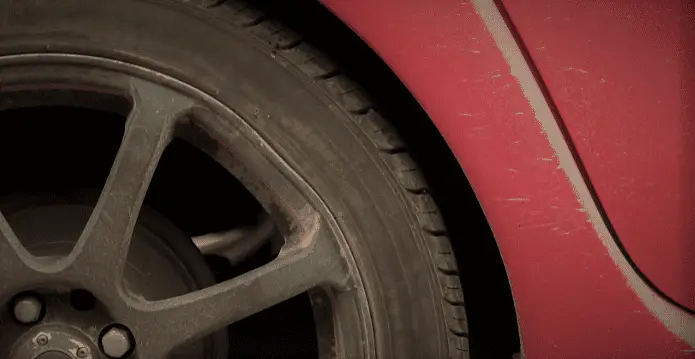
It is more obvious when you have left your car overnight as sometimes it has been leaking during the day but has been exacerbated at night.
A quick way of checking is to spray soapy water around the rim where it meets the tire. If you see bubbles, you have a leak.
Underinflated Tires
It could be that your tires are not properly inflated to start with. This can be especially true if you are carrying heavier loads. Tire manufacturers often state minimum and maximum air pressure, which ties in with the weight carried.
If your tire looks slightly underinflated on normal driving, this could be well underinflated for a heavy load, whether that be tools or personal items.
Many tire manufacturers state that you should increase the air pressure in your tires in winter. Often the temperature does not increase adequately during the day for normal tire pressure to be enough to inflate the tire.
You should consult your car manual for guidance or visit the tire manufacturer’s website. As a rule, most state that you should add between 3 to 7 extra psi in extremely cold weather.
Tire Dry Rot
Dry rot, often called weathering, can allow air molecules to escape from the tire. Even if the cracks are very small, this can still occur.
The older and wider the cracks are, the more likely you will notice larger drops in tire pressure overnight.
Tires with dry rot should be replaced as a matter of course anyway.
In Conclusion
The most likely cause of your tire losing air pressure overnight is a drop in temperature. If all of your tires are experiencing this drop, it is almost definitely this.
If only one tire loses air pressure overnight, it is likely to be a more common cause of leaking.
Always start with the most obvious: any nails or screws in the tire. Then move on to the valve and check it is clean inside and that you have a valve cap fitted.
Check for rim damage and also check for any signs of dry rot.
Depending on the time of year also dictates how much air you should have in your tire, so make sure you have the correct PSI by referring to the manufacturer’s book for your car.


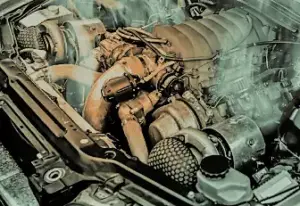
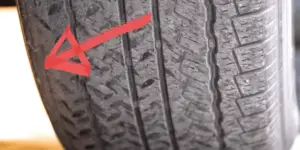
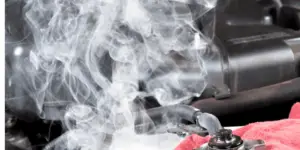

![Minor Dry Rotted Tires [GUIDE] Tire-veins-dry-rot](https://carzaza.com/wp-content/uploads/2023/12/Tire-veins-dry-rot-300x150.png)
![Coolant Still Under Pressure When Cold [FIXED] radiator-cap](https://carzaza.com/wp-content/uploads/2024/02/radiator-cap-300x150.png)
